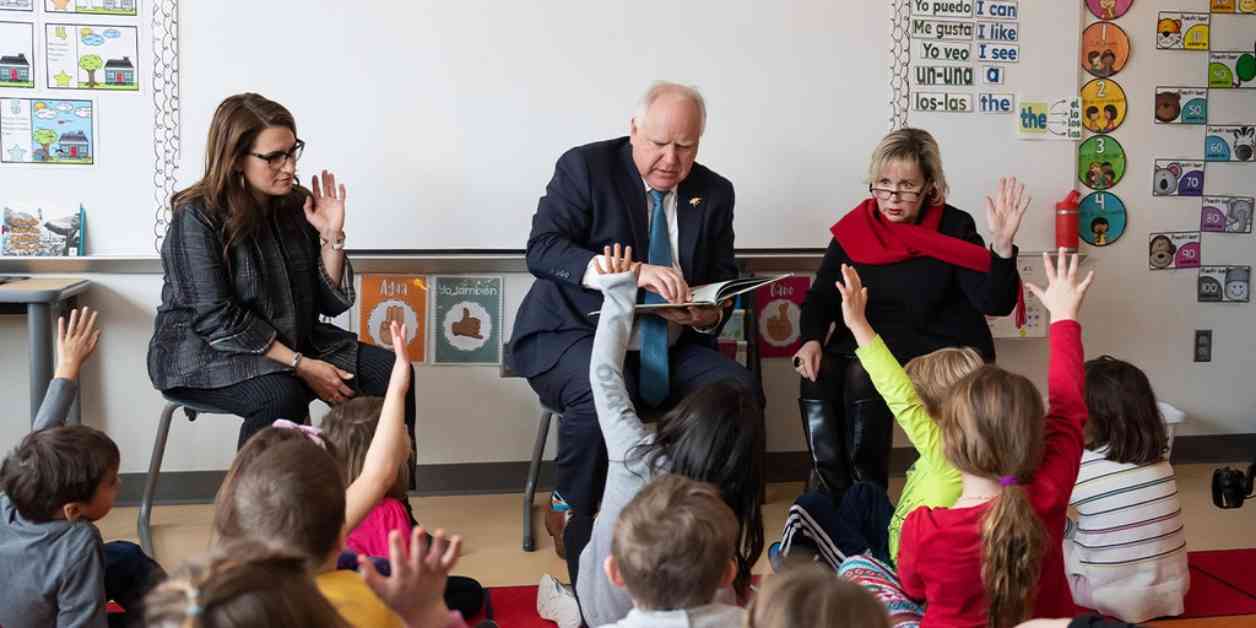An associate college professor who was appointed to the Minnesota State Department of Education by Gov. Tim Walz has sparked controversy with his calls for the overthrow and deconstruction of the United States. Brian Lozenski, Ph.D., is an associate professor of urban and multicultural education at Macalester College in St. Paul, Minnesota, and is affiliated with various organizations such as the Education for Liberation Network and the Network for the Development of Children of African Descent. Lozenski’s appointment to the state’s department of education by Walz was to help develop the framework for ethnic studies standards.
Lozenski’s controversial statements were brought to light in a video posted over two years ago by The Solidarity Network and reported on by the National Review. In the video, Lozenski discussed his research with a panel and touched on Critical Race Theory, a school of thought that examines how power structures and institutions impact racial minorities. The video has since been removed from YouTube, but Lozenski’s words continue to stir debate.
During the panel discussion, Lozenski expressed his views on critical race theory, stating, “The first tenet of critical race theory is that the United States, as constructed, is irreversibly racist. So, if the nation state, as constructed, is irreversibly racist, then it must be done with. It must be overthrown.” He emphasized that critical race theory is not just about diversity and storytelling but about challenging and ultimately dismantling existing power structures.
Lozenski’s call for the overthrow and deconstruction of the United States has raised concerns among critics who argue that such radical views have no place in shaping educational standards. The appointment of Lozenski by Gov. Walz to contribute to the development of ethnic studies standards has further fueled the debate over the influence of progressive ideologies in education policy.
As the debate continues, it is essential to consider the implications of Lozenski’s views on critical race theory and their potential impact on educational practices. Critics argue that promoting ideologies that call for the overthrow of the existing system could undermine the principles of democracy and create division among students and educators.
Controversy Surrounding Lozenski’s Appointment
The controversy surrounding Lozenski’s appointment to the Minnesota State Department of Education has sparked a broader discussion about the role of political activists in shaping education policy. Critics argue that individuals with extreme views, such as Lozenski’s call for the overthrow of the United States, should not be involved in developing educational standards that shape the minds of young learners.
Gov. Walz’s decision to appoint Lozenski to contribute to the development of ethnic studies standards has faced criticism from those who believe that such appointments should be made based on qualifications and expertise rather than political ideology. The debate over the influence of progressive ideologies in education policy highlights the need for a balanced and inclusive approach to curriculum development.
The Impact of Critical Race Theory in Education
Critical Race Theory has become a controversial topic in education, with proponents arguing that it offers a valuable perspective on systemic racism and inequality. However, critics of Critical Race Theory raise concerns about its potential to sow division and promote radical ideologies in educational settings.
The debate over the use of Critical Race Theory in schools underscores the importance of fostering open and respectful dialogue on complex issues such as racism and discrimination. Educators and policymakers must navigate these discussions carefully to ensure that students are exposed to diverse perspectives while also upholding fundamental principles of academic freedom and critical thinking.
Addressing Controversies in Education Policy
As controversies surrounding individuals like Brian Lozenski continue to emerge in education policy, it is crucial for stakeholders to engage in constructive dialogue and seek common ground on issues that impact students and educators. By fostering an inclusive and diverse learning environment, schools can empower students to think critically and engage with complex social issues in a respectful and informed manner.
In conclusion, the appointment of individuals with extreme views like Lozenski to positions of influence in education policy highlights the need for accountability and transparency in the development of curriculum standards. By promoting a balanced and inclusive approach to education, policymakers can ensure that students are exposed to diverse perspectives and are equipped to navigate complex social issues with empathy and understanding.




